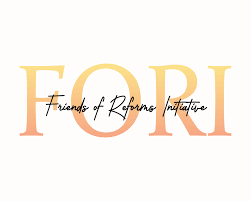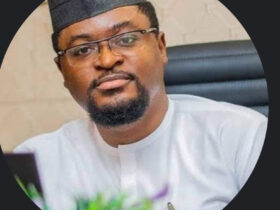For decades, national security challenges have been a significant obstacle to progress in many African countries. Issues such as terrorism, insurgency, banditry, kidnapping, separatist movements, and extremist violence have made governance, daily life, and development increasingly difficult. These challenges disproportionately affect women, who constitute the majority of the population and often bear the brunt of the impact.
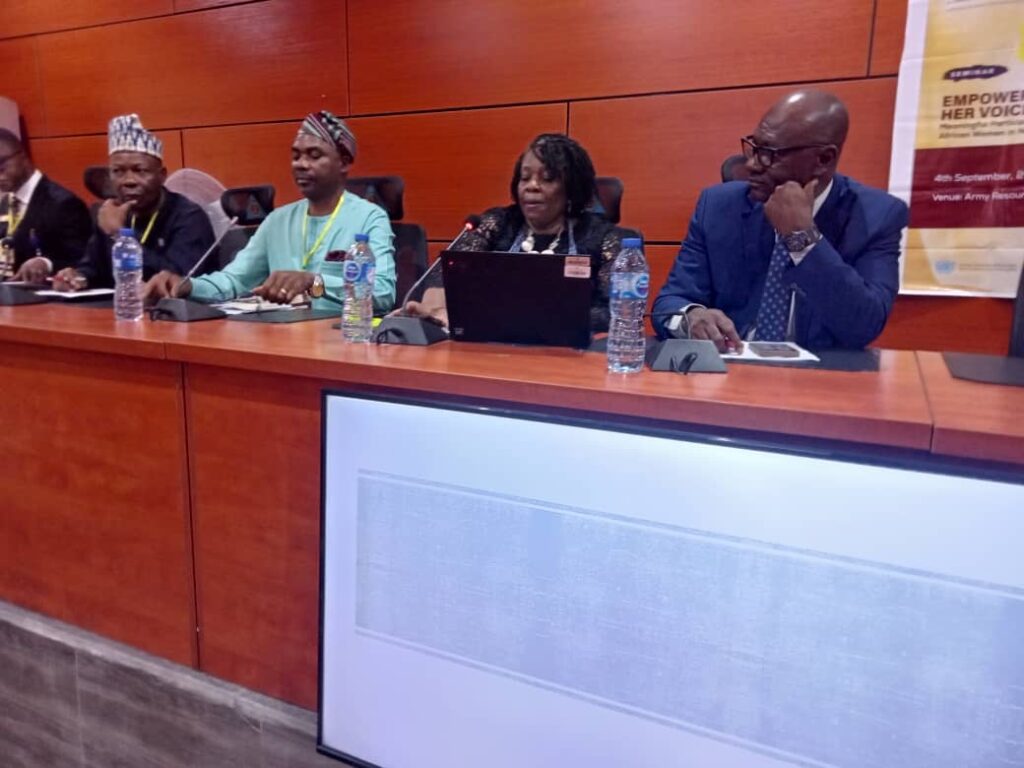
Efforts to address these challenges are primarily led by national security agencies that are largely male-dominated, thereby limiting the potential contributions women could make in resolving these issues.
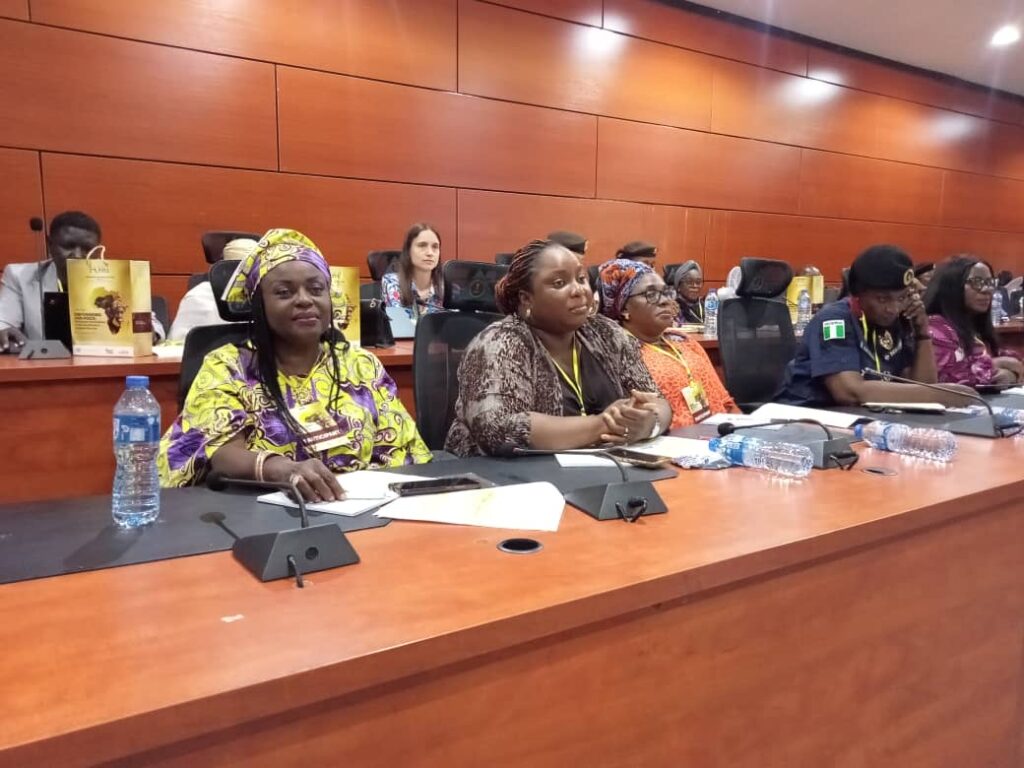
On August 4, 2024, a dedicated advocate for reform, Ms. Ujay Nwobi, took the initiative to address this imbalance. She led her organization, Friends of Reforms Initiative (FORI), in collaboration with the United Nations Office for West Africa and the Sahel (UNOWAS) and the Impart Her World Foundation, in a seminar aimed at redressing the underrepresentation of women in national security.
Titled “Empowering Her Voice: Meaningful Participation of African Women in National Security,” the seminar was attended by a select group of participants from across West Africa. The convener, Ms. Nwobi, alongside notable figures such as Dr. Joseph Ochogwu, Director General of the Institute for Peace and Conflict Resolution, Prof. Olu Ogunsakin of the National Institute of Police Studies, and Dr. James Aji of UNOWAS, emphasized the importance of educating women about their roles in national security.
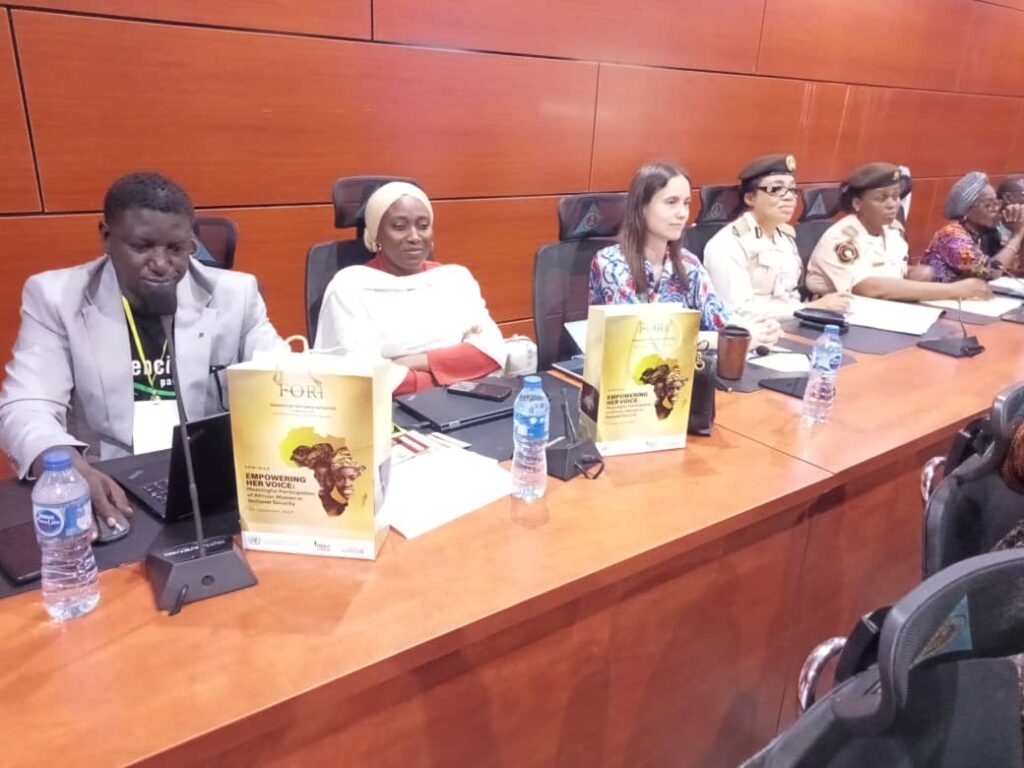
In her opening remarks, Ms. Nwobi reaffirmed the seminar’s commitment to enhancing women’s inclusion in national security, particularly in a region that continues to grapple with complex security challenges. She urged participants to elevate the discussions to the level needed to effect real change.
Ms. Nwobi also highlighted how past contributions by women to peacekeeping, conflict resolution, and security sector reforms have often been undervalued, despite their significant impact. However, she noted that women’s efforts are increasingly being recognized, as evidenced by recent appointments of women to prominent positions within the Nigerian security sector, such as Secretary of the Nigeria Police Force and Minister of State for Police Affairs.
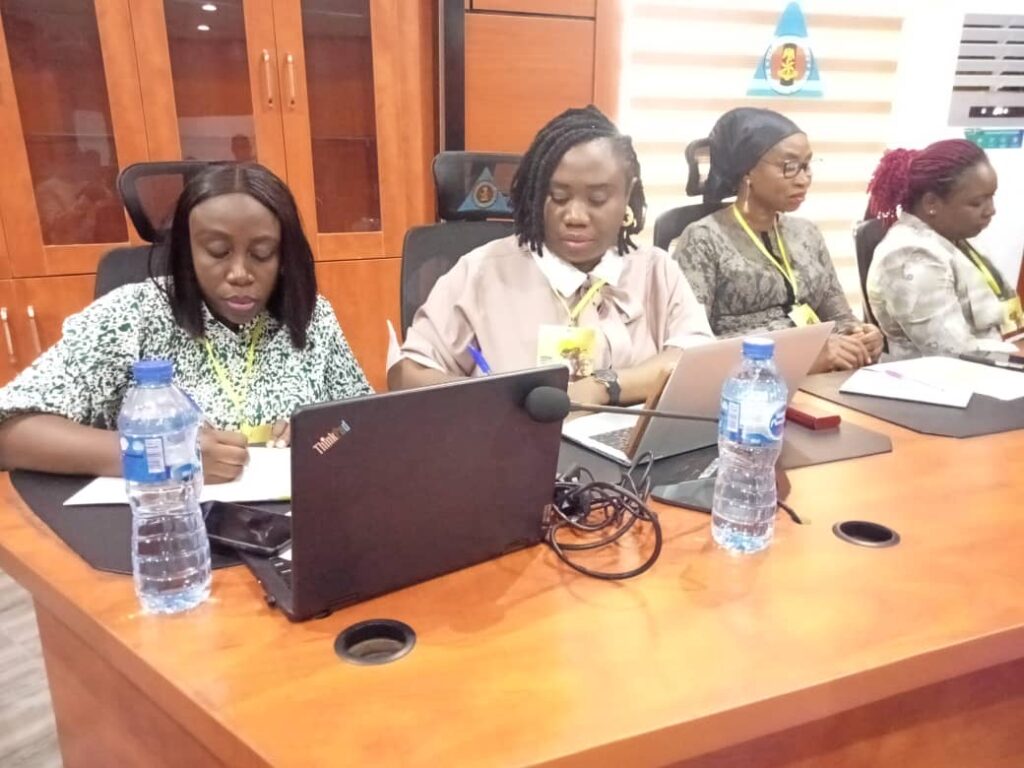
She further explained that the security challenges facing Nigeria and the African continent are multi-dimensional and transnational. The need for women to equip themselves with knowledge and expertise across various fields is critical if they are to take advantage of opportunities to serve in leadership roles in security decision-making.
The seminar provided a platform to discuss gender perspectives on national security, build networks, and form alliances, with participants noting that national security is a collective effort requiring a comprehensive and integrated approach.
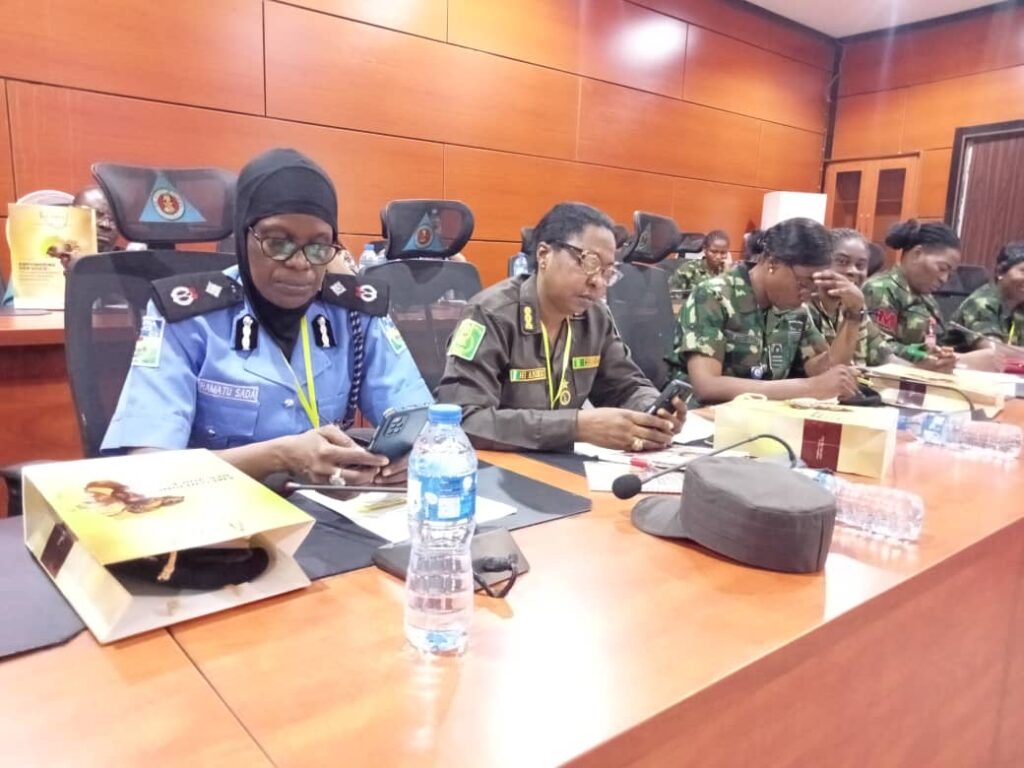
Dr. James Aji representing UNOWAS, emphasized that the seminar’s focus aligns with their mandate on peace and security, particularly in conflict resolution. He stressed the importance of women’s involvement in managing and resolving conflicts, given that women constitute a significant portion of the population in West Africa.
Dr. Joseph Ochogwu, in his keynote address, urged African nations to intensify training and raise awareness about the critical roles women can play in combating insecurity. He highlighted the urgency of this call in light of the inability of many African states to manage conflicts effectively, with nearly half of the continent experiencing varying levels of violence by mid-2024.
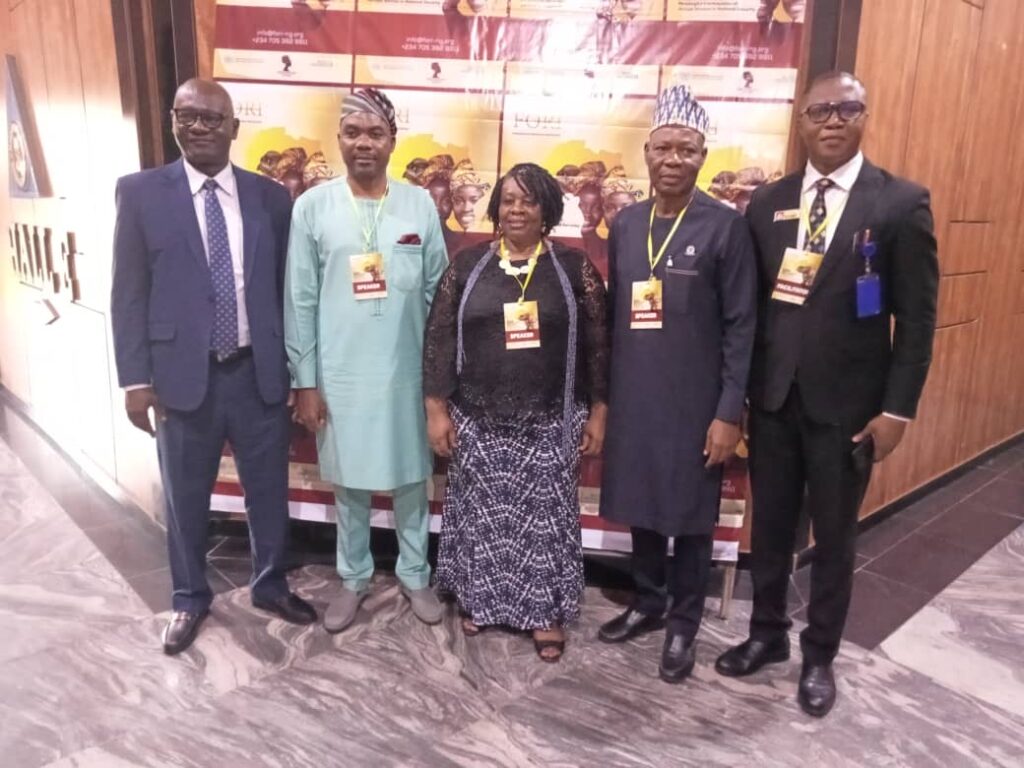
Prof. Olu Ogunsakin spoke on the historical roles African women, including his mother, have played as pillars of their communities. However, he acknowledged that women have often been denied recognition, not due to a lack of contribution, but because of cultural stereotypes. He emphasized the need to eliminate barriers that prevent women from fully participating in governance and policy-making, drawing attention to the critical insights women bring to addressing the root causes of conflict and promoting social cohesion.
Rwanda was cited as a prime example of the positive impact women’s inclusion in governance has had on national security, with the country leading globally in the percentage of women in parliament.
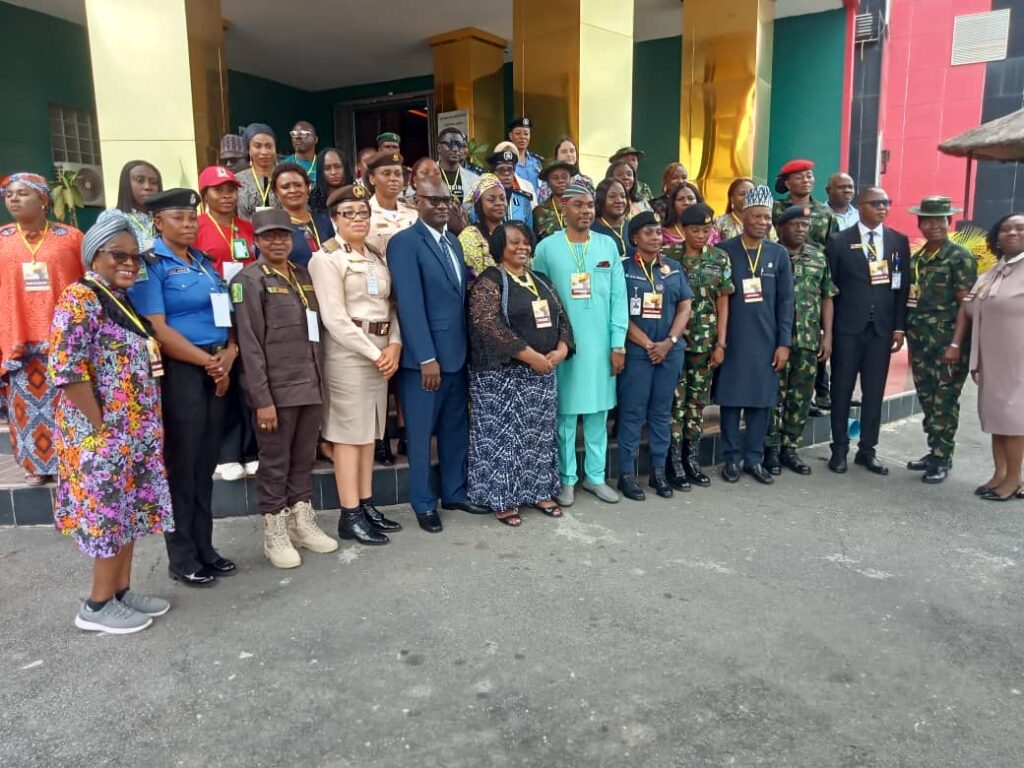
The seminar concluded with a call for concerted efforts from governments, civil society, and international organizations to address the barriers women face in the security sector. The inclusion of women in security forces is essential for a comprehensive national security strategy, as their perspectives and skills enhance the effectiveness of security operations. Female peacekeepers, for example, have been shown to improve community relations and reduce violence in conflict zones.
In Nigeria, women have played active roles in countering violent extremism, particularly in the North East, where they have been instrumental in resolving conflicts and assisting in internally displaced persons camps. Prof. Ogunsakin stressed the importance of continuing education, policy reforms, community engagement, and international cooperation to further advance the role of women in national security.
Ultimately, the responsibility of enhancing women’s participation in national security does not lie with women alone. Men must also champion this cause and work towards a more inclusive and effective approach to securing the region.






